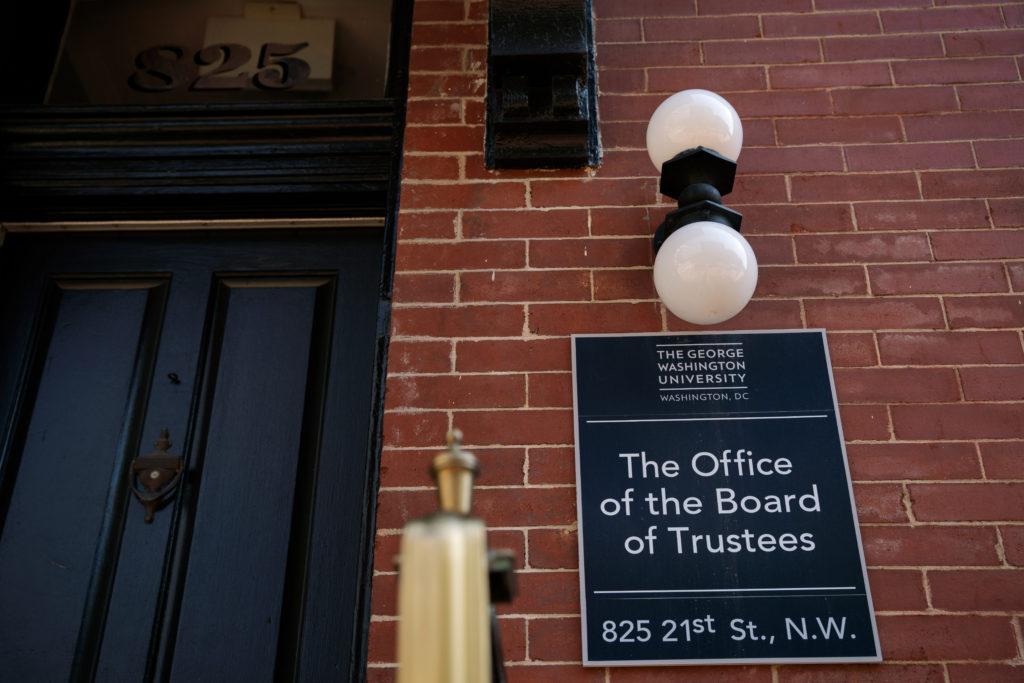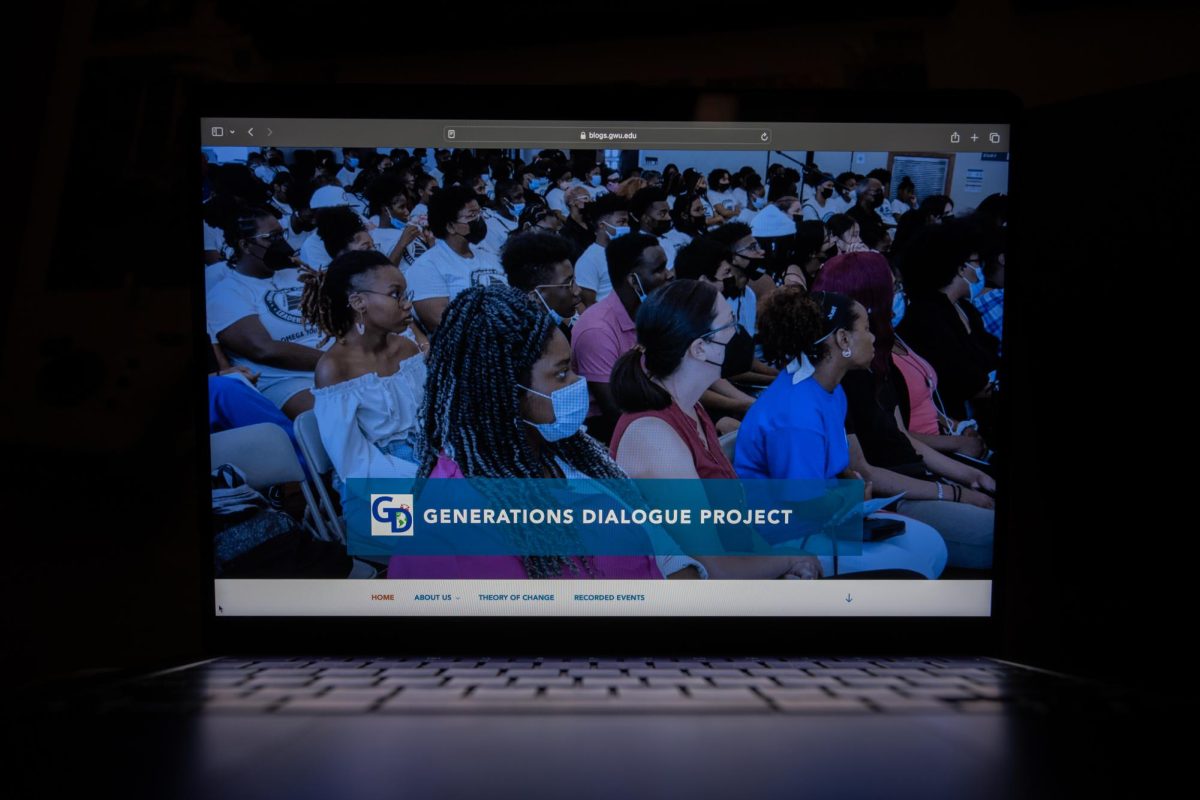Updated: Sept. 20, 2021 at 10:50 p.m.
After a majority of faculty lost confidence in University President Thomas LeBlanc’s leadership, faculty said they were surprised but pleased to hear Board of Trustees Chair Grace Speights announce Mark Wrighton would replace him as interim president.
In an address to the Faculty Senate earlier this month, Speights said trustees appointed Wrighton, the former chancellor of Washington University at St. Louis, to serve as interim president for up to 18 months starting in January. At least 10 faculty members said they hope Wrighton will work to repair administrators’ relations with the GW community and strengthen shared governance as ties between faculty and officials have deteriorated in the buildup to LeBlanc’s retirement announcement.
LeBlanc initially announced in May that he would step down at the end of the current academic year.
Wrighton said in an interview with The Hatchet earlier this month that he hopes to work with faculty toward a “common understanding” of shared governance in preparation for the arrival of the next permanent president.
“Our objective is to prepare the institution for a new president by coming to both an understanding and implementing that understanding,” he said.
Professors have previously expressed concerns about the lack of faculty input and involvement in the presidential search process and University decisions, like the 20/30 Plan and the Disney culture survey. Speights said at the senate meeting that officials will postpone the current presidential search until “early spring.”
Salah Hassan, a professor of global marketing and brand management, said he commends the Board for its appointment of Wrighton as interim leader during this transitional time at the University. He said Wrighton, who he views as a “highly respected” scholar and leader, will respect GW’s culture, involve the community in future planning and provide more stability to GW’s recovery from the COVID-19 pandemic.
Hassan said Wrighton will bring a “fresh” perspective to the University because of his previous experience at WashU and other academic institutions like the Massachusetts and California Institutes of Technology. He said an interim president at GW will allow more time for the Board to select a permanent leader.
“This is certainly a turning point for George Washington University, and I think it is the right move from the Board of Trustees to proceed on that basis,” he said.
Lawrence Cunningham, a professor of law, said the Board’s decision to select Wrighton was “rational” because of the ongoing tension and lack of consensus around shared governance. He said Wrighton should try to unite the entire University, including staff and students, and contribute to the “cultural” debates about shared governance within the faculty during his short tenure.
He said the new interim president should encourage more research projects among faculty and a strong relationship across all University departments. Cunningham said Wrighton’s accomplishments at WashU, like tripling undergraduate applications and adding about 300 chaired professorships, could not have occurred without fostering relations between faculty and administrators and uniting them behind a “shared vision.”
“I would recognize that he appreciates the shared governance model,” Cunningham said. “It’s not a top-down university where the president calls the shots.”
Cunningham said the Board’s appointment of Wrighton and postponement of the presidential search will help them identify a more talented presidential candidate in the future than if officials moved forward with the search this fall. Speights, the Board chair, said at the senate meeting that officials were “concerned” about finding a presidential candidate because of recent negative media attention and a limited applicant pool caused by presidential searches at other universities.
“I think it’s a perfectly wise decision of the Board of Trustees, and I think it carries a lot of promise,” Cunningham said.
Hugo Junghenn, a professor of mathematics, said he hopes Wrighton will work with and listen to faculty to enhance shared governance and “elevate” GW’s standing in national higher education rankings, especially considering his distinguished career at other institutions. He said Wrighton is “very qualified” and hopes that he will accept faculty’s input about the University’s future instead of sidelining them in ways similar to LeBlanc’s leadership.
“Maybe there’ll be this issue of shared governance, bringing in the faculty more, and I believe that the Board of Trustees finally sees that as an important aspect of choosing the new president,” Junghenn said.
Speights and faculty senators outlined and discussed their expectations about shared governance among trustees, faculty and administrators at the senate meeting. In an email sent to faculty in May, Speights said she was “troubled” by some professors who contributed more to discord than to civil dialogue within the University.
Junghenn said Wrighton won’t be able to make many “substantive” decisions in 18 months because interim presidents often defer long-term decision-making to the next permanent president.
“The next president is going to have to do whatever he or she can do to elevate our standing among not just local universities but all universities,” he said.
Erin Chapman – a professor of history and the president of the Faculty Association, which has been vocal in its disapproval of LeBlanc and the Board – said she expects Speights’ intention to revise the parameters of shared governance will “greatly” reduce the senate’s “minimal” power in the University’s decisions. She said the decision to select an interim president without faculty consultation casts “doubt” on the Board’s commitment to shared governance at the University instead.
“This bodes ill for employee and student satisfaction and for the ongoing effort to make GW an excellent and equitable university,” she said in an email.
Nousha Flore contributed reporting.
This post has been updated to correct the following:
The Hatchet incorrectly reported that Chapman is a professor of English. She is a professor of history. We regret this error.







